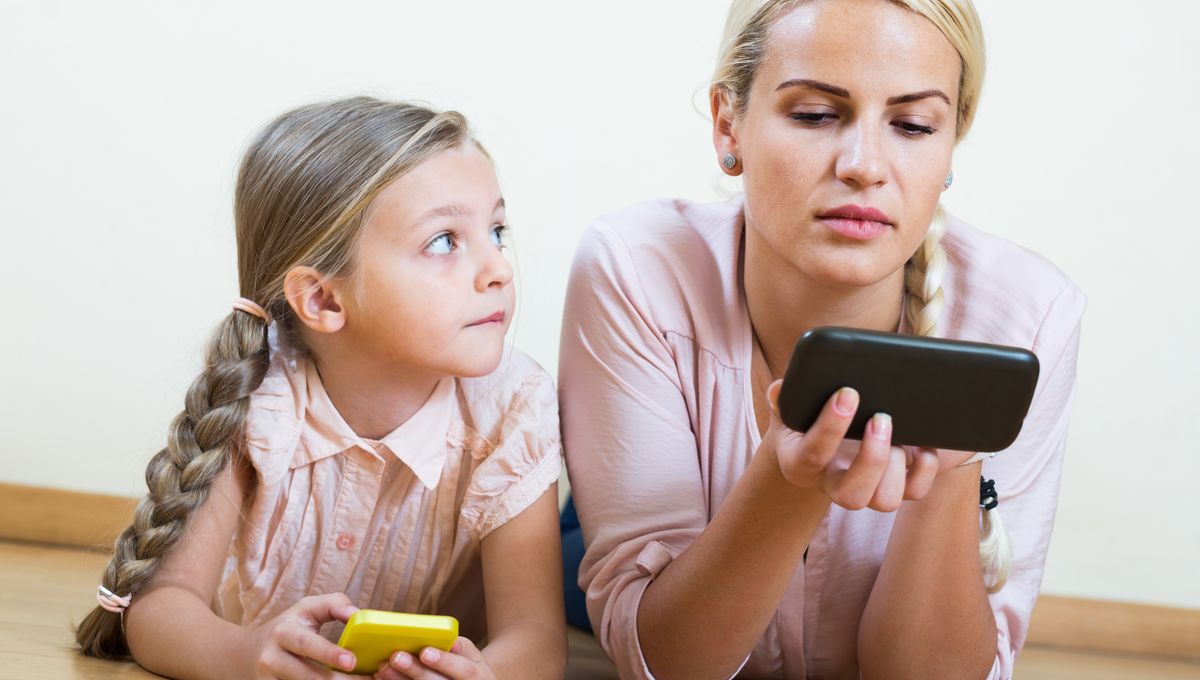
Phubbing: you’ve probably done it, and you probably hate it. Ignoring other people in favor of staring in rapt attention at your phone is unlikely to lead to relationship or social success. But have you ever thought about the impact that parents’ phubbing can have on their kids? A new study has found some evidence for a link between parental phubbing and smartphone addiction in kids of junior high age.
If you’re not familiar with the term “phubbing”, let’s break it down: It’s a portmanteau of the words “phone” and “snubbing”, and just refers to any situation where someone is paying more attention to the little black box of information in their hand than they are to the people around them.
We often hear about the impact of phubbing in the context of romantic relationships, but the researchers behind the new study were specifically concerned about the effect that phubbing from parents can have on their kids. They defined phubbing as any time when a parent ignored their child in favor of focusing on their cellphone, and asked 1,200 junior high school students in China to complete questionnaires about their experiences.
When they looked at the data, the possible link between being phubbed and developing traits associated with phone addiction was apparent. Kids who showed more of the symptoms of phone addiction, as measured using a 16-point scale, were more likely to report instances of parental phubbing. These kids also reported lower levels of cohesion between themselves and their parents, as well as poorer quality friendships with their peers.
Smartphone “addiction” is a controversial topic. While many share concerns about the excessive or problematic use of smartphones, particularly among young people, whether this can be classed as a true addiction has been disputed. On top of that, there’s evidence to suggest that tech use isn’t harmful to kids anyway.
However, it stands to reason that if young people repeatedly feel snubbed by their caregivers, even where this may be unintentional, it’s probably not going to have a positive impact on the relationship. Previous studies have raised similar concerns about the impact of parental phubbing on the wellbeing of kids. The fact that this behavior can push kids towards more intense smartphone use themselves is likely just one aspect of the harm caused.
The authors do note some limitations to the study, the most obvious being that the participants were solely from China, and it’s not clear how generalizable these findings are to the rest of the world. There are also caveats that come with studies relying on self-reported data, such as inaccuracies and subjectivity.
Overall, though, the results do add something new to the complex picture of how our increasing reliance on tech is reshaping our relationship dynamics in ways we may not have predicted.
As the study authors write: “Based on the results of this study, if parents intend to reduce the risk of mobile phone addiction among teenagers, they can no longer ignore the seemingly harmless parental phubbing.”
The study is published in Frontiers in Psychology.
[H/T: PsyPost]
Source Link: Parents Who Phub Could Push Their Kids Towards Phone "Addiction"